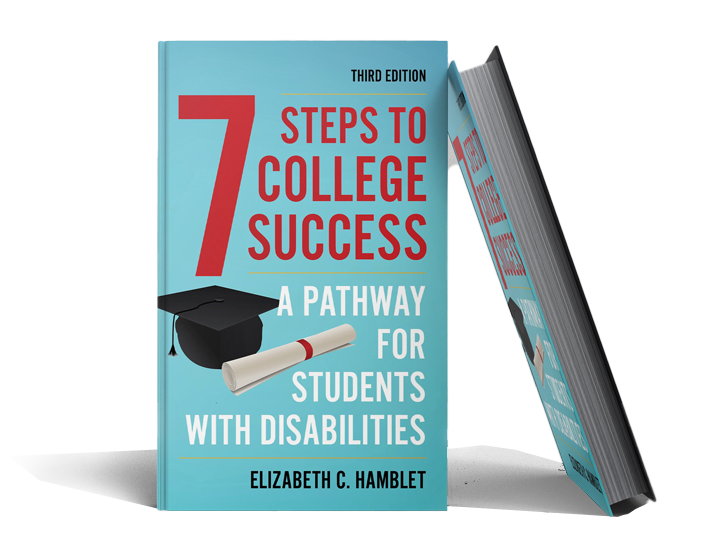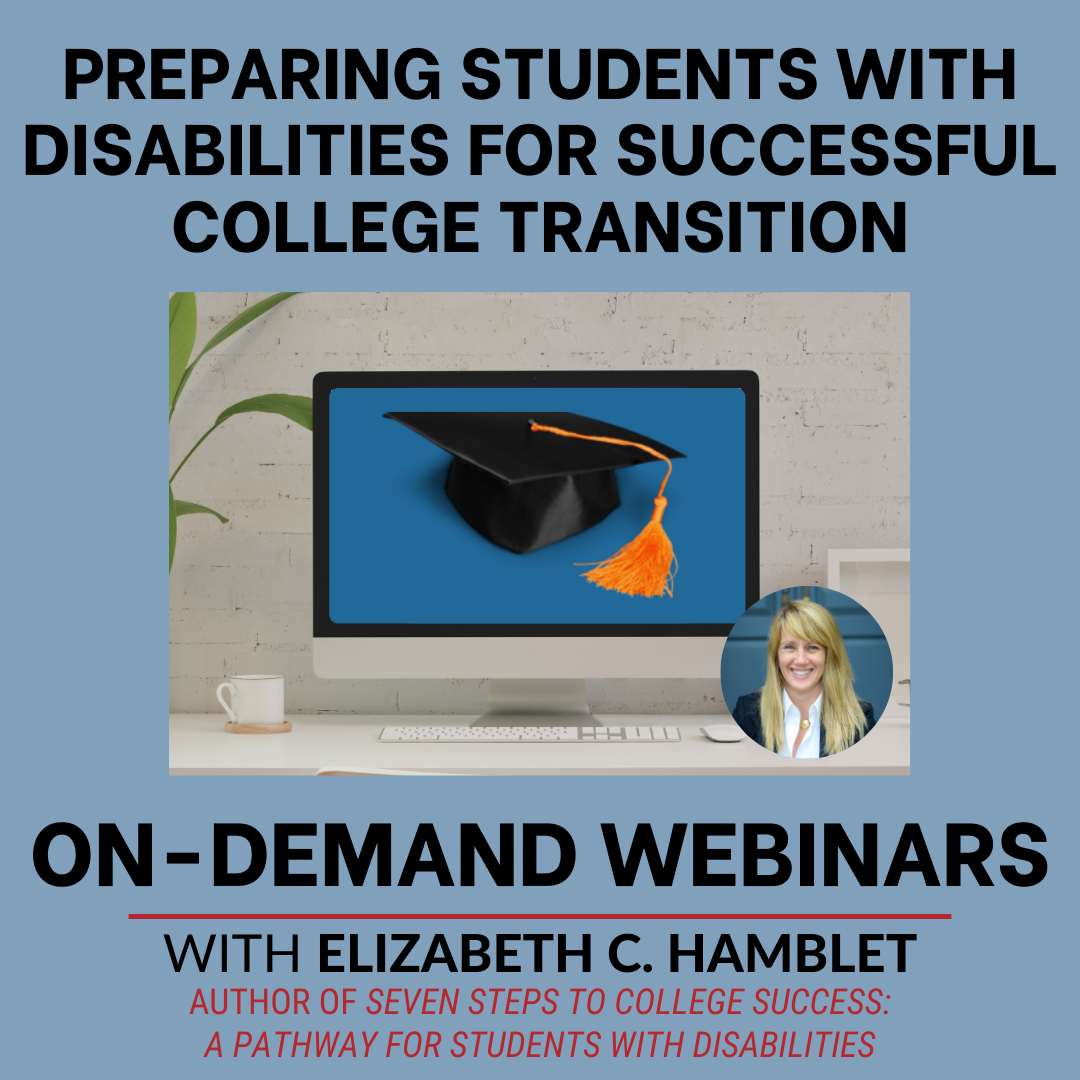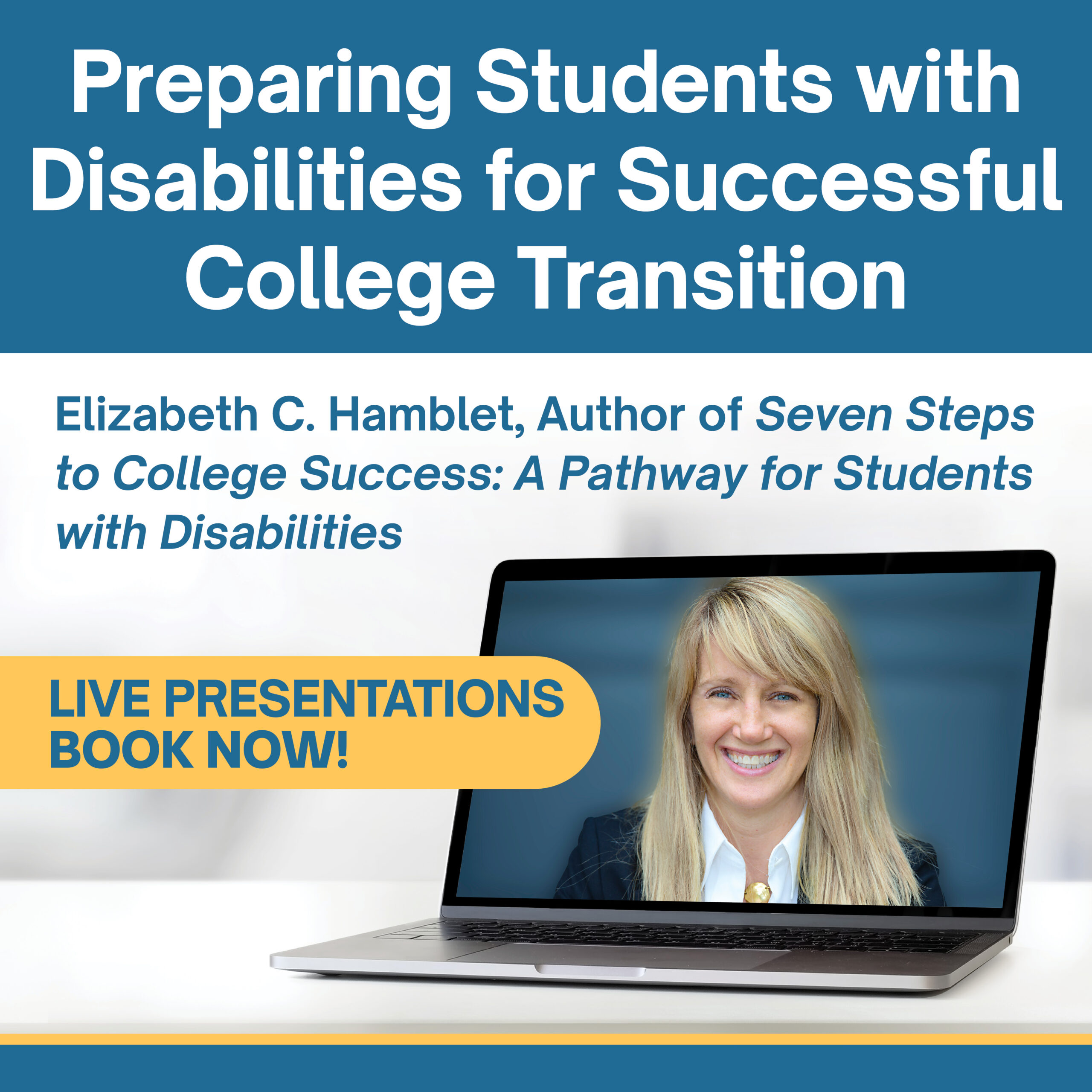Introduction
Once students receive their college acceptances, they have to decide which school is the best fit for them. For students with disabilities interested in receiving accommodations, this process should also include looking at disability services (if they didn’t do so during their search process).
I know that many students are seeking minimal contact with their college’s disability services (DS) office. For them, the good news is that – after their initial registration with DS – they may never need to speak with DS staff again, as long as they don’t have any issues with their accommodations. (And they may not have to during that process, either – it may be a wholly online paperwork-based process. Read this post or watch this video to see what the process may look like.) Even so, doing a bit of research on each college’s DS office can give them a bit more information to help them make a decision about where to attend college.
Two things students with disabilities should know
1) Disability accommodations are available at their college, and that they’re available to those with “non-apparent” disabilities (such as learning, attention, and psychological disabilities), not just to students with apparent disabilities (such as physical or visual disabilities).
2) All colleges have to provide at least some minimal accommodations. Some go beyond what’s required, while others don’t. Student should not make any assumptions about what will be available to them at one college vs. another (ex. they shouldn’t assume private colleges provide better or more accommodations than public schools). Those who have been told that colleges have to provide them the same accommodations they received in high school should be aware that this is not true.
For more information, read about some accommodations that are and aren’t commonly approved and some myths and misunderstandings about IEPs, 504 plans, and college accommodations
What should students research, and how can they do this?
In the weeks before they have to commit to a college, students with disabilities can do some research online, if they didn’t do it while they were adding colleges to their list.
I offer a free form they can use with suggestion for areas to probe.
I also suggest what supports to probe that might be offered by DS or by other offices or centers on campus. I offer a post suggesting what to look at and a video where I demonstrate how to do this research online.
Students may find that colleges offer a list of common accommodations, but they should not assume that those accommodations will be available to them.
Can students find out what accommodations each college will approve for them?
Students interested in knowing what accommodations they will receive before they make their final college choice can try contacting the disability services office (DS) at each of the schools to which they’ve been accepted to see if they could review their requests and tell them what they would be eligible to receive. If they are visiting colleges for another look and want to discuss this in person, they should make an appointment with the office (or designated contact person).
Keep in mind that some offices are run by a single person who might not have the availability to do this, given their caseload. This doesn’t mean that they don’t want to be helpful, just that they are very busy serving their current students.
What if students are visiting colleges one more time before deciding?
Even if they are not concerned about accommodations, students who are making last visits before making their decision should try to set up a brief meeting with DS so they can get a sense of the office and whether they are comfortable with the people with whom they’d have to interact. (In some cases, it will be a one-person office, making their sense of connection even more important.) Students may not care much about who works in DS, but it is one more piece of information they can use to help them make a decision. (Those who can’t visit can try to accomplish the same thing with a scheduled phone call.)
What to do after they’ve chosen a college and enrolled
Once students have enrolled at the college they’ll attend, they should register with DS right away (if possible). This will help to make sure their accommodations will be in place when classes start.
Research shows many students don’t register for accommodations once they’re at college. This post speaks directly to them about the reasons why they should. (For any adults trying persuade them, this post provides points for that conversation.




